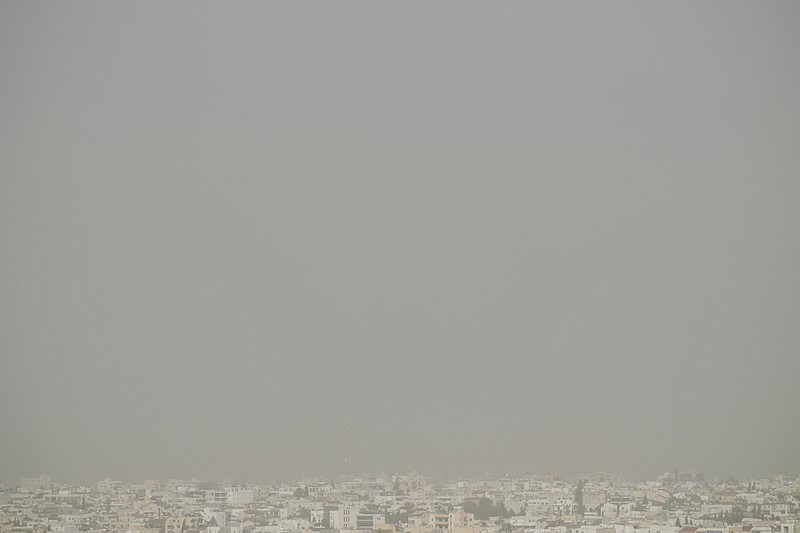GENEVA -- The U.N. health agency says nearly everybody in the world breathes air that doesn't meet its standards for air quality, calling for more action to reduce fossil fuel use, which generates pollutants that cause respiratory and blood-flow problems and leads to millions of preventable deaths each year.
The World Health Organization, about six months after tightening its guidelines on air quality, on Monday issued an update to its database on air quality that draws on information from a growing number of cities, towns and villages across the globe -- now more than 6,000 municipalities.
WHO said 99% of the global population breathes air that exceeds its air-quality limits and is often rife with particles that can penetrate deep into the lungs, enter the veins and arteries and cause disease. Air quality is poorest in WHO's eastern Mediterranean and Southeast Asia regions, followed by Africa, it said.
"After surviving a pandemic, it is unacceptable to still have 7 million preventable deaths and countless preventable lost years of good health due to air pollution," said Dr. Maria Neira, head of WHO's department of environment, climate change and health. "Yet too many investments are still being sunk into a polluted environment rather than in clean, healthy air."
The database, which has traditionally considered two types of particulate matter known as PM2.5 and PM10, for the first time has included ground measurements of nitrogen dioxide. The last version of the database was issued in 2018.
Nitrogen dioxide originates mainly from human-generated burning of fuel, such as through automobile traffic, and is most common in urban areas. Exposure can bring respiratory disease such as asthma and symptoms such as coughing, wheezing and difficulty breathing, and more hospital and emergency-room admissions, WHO said. The highest concentrations were found in the eastern Mediterranean region.
On Monday, the east Mediterranean island of Cyprus suffered through high concentrations of atmospheric dust for the third straight day, with some cities experiencing three and nearly four times the 50 micrograms per square meter that authorities consider normal. Officials said the microscopic particles could be especially harmful to children, the elderly and the ill.
Particulate matter has many sources, such as transportation, power plants, agriculture, the burning of waste and industry -- as well as from natural sources such as desert dust. The developing world is particularly hard hit: India had high levels of PM10, while China showed high levels of PM2.5, the database revealed.
The Council on Energy, Environment and Water, a New Delhi-based think tank, found that more than 60% of India's PM2.5 loads are from households and industries. Tanushree Ganguly, who heads the council's program on air quality, called for action toward reducing emissions from industries, automobiles, biomass burning and domestic energy.
"We need to prioritize clean energy access for households that need it the most, and take active measures to clean up our industrial sector," she said.
Information for this article was contributed by Aniruddha Ghosal of The Associated Press.
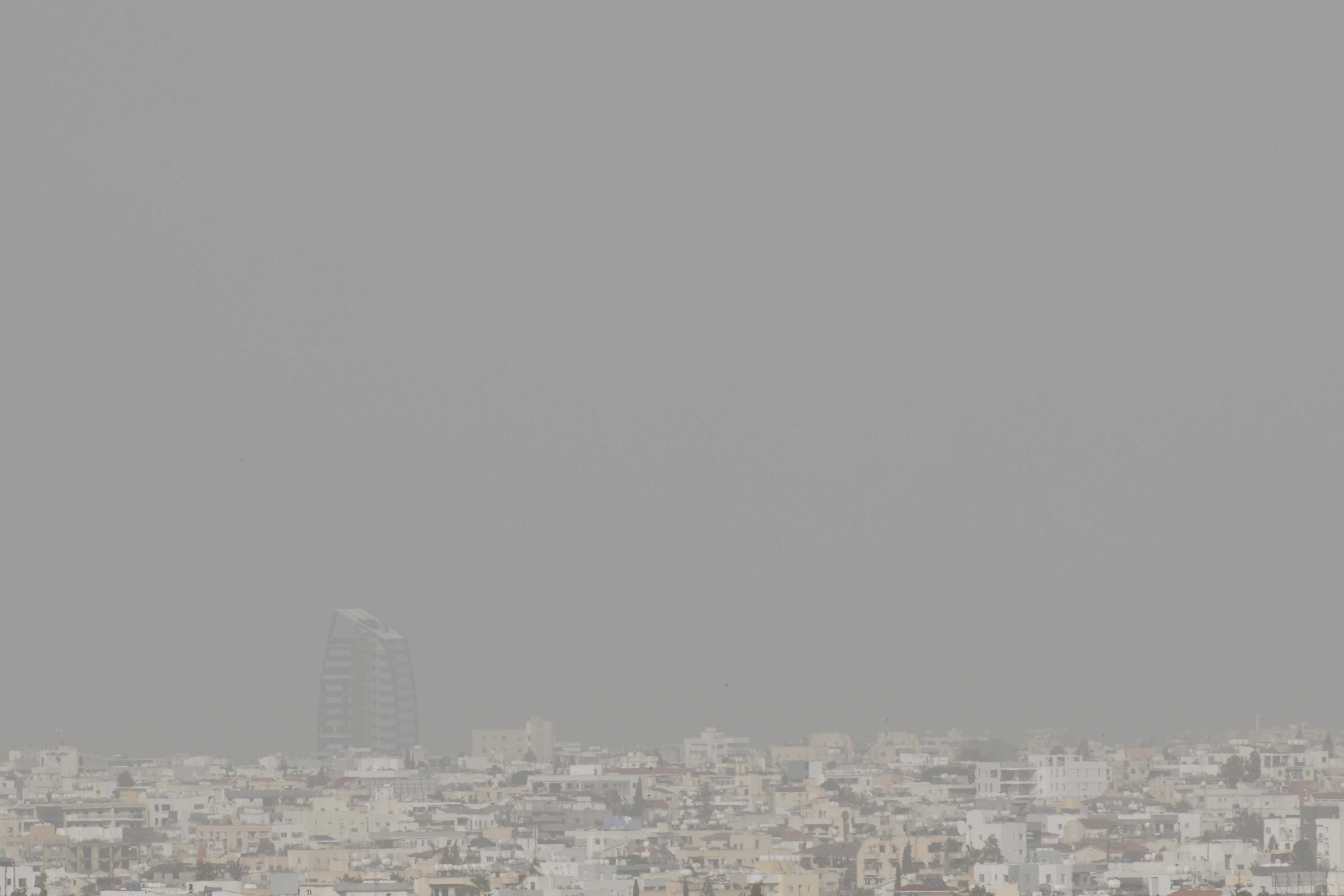 A haze caused by dust covers the capital Nicosia, in the southeast Mediterranean island of Cyprus, on Monday, April 4, 2022. The U.N. health agency says nearly everybody in the world breathes air that doesn't meet its standards for air quality. The World Health Organization is calling for more action reduce fossil-use use that generate pollutants that cause respiratory and blood-flow problems and lead to millions of preventable deaths each year. (AP Photo/Petros Karadjias)
A haze caused by dust covers the capital Nicosia, in the southeast Mediterranean island of Cyprus, on Monday, April 4, 2022. The U.N. health agency says nearly everybody in the world breathes air that doesn't meet its standards for air quality. The World Health Organization is calling for more action reduce fossil-use use that generate pollutants that cause respiratory and blood-flow problems and lead to millions of preventable deaths each year. (AP Photo/Petros Karadjias)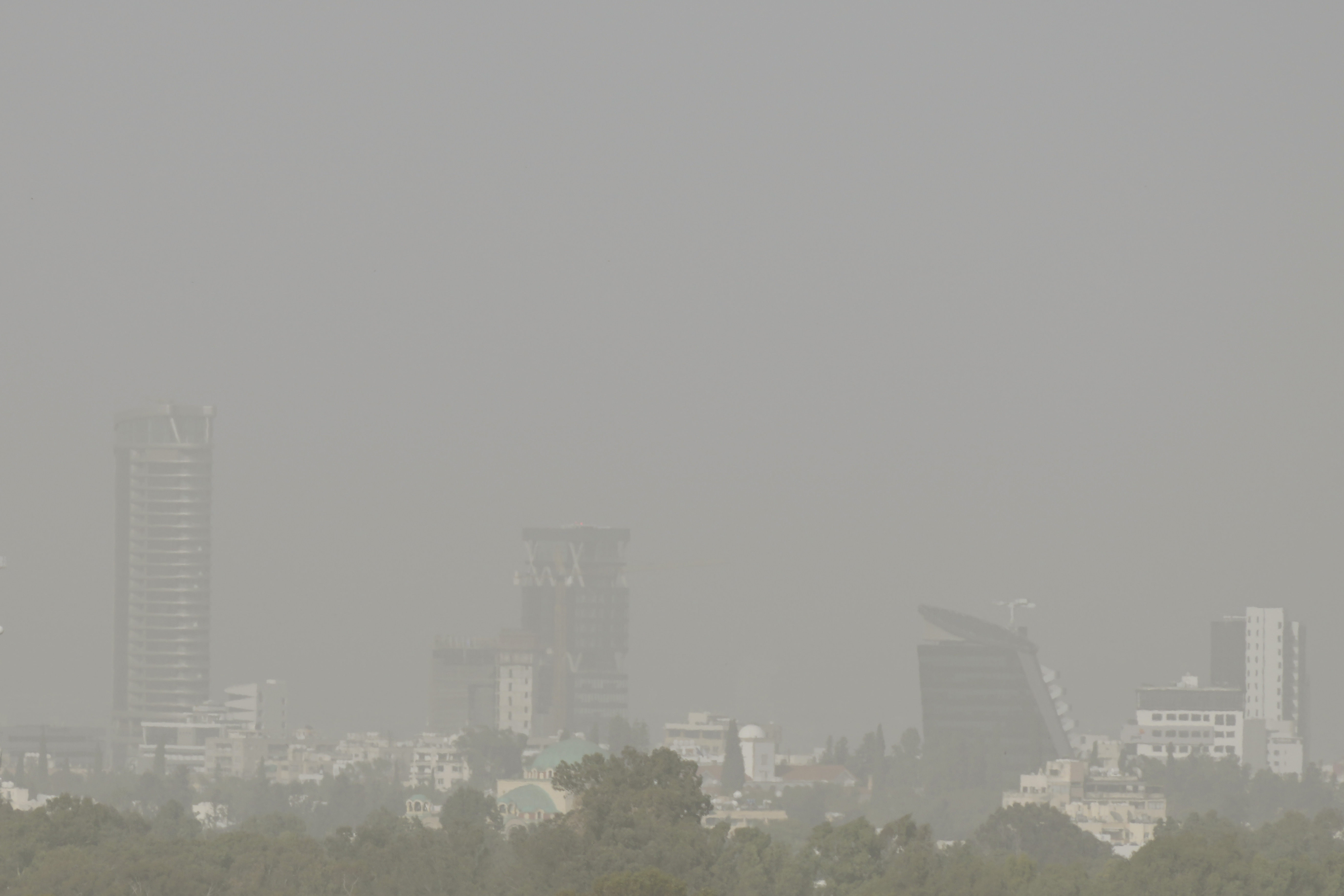 A haze caused by a dust covers the capital Nicosia, in the southeast Mediterranean island of Cyprus, on Monday, April 4, 2022. The U.N. health agency says nearly everybody in the world breathes air that doesn't meet its standards for air quality. The World Health Organization is calling for more action reduce fossil-use use that generate pollutants that cause respiratory and blood-flow problems and lead to millions of preventable deaths each year. (AP Photo/Petros Karadjias)
A haze caused by a dust covers the capital Nicosia, in the southeast Mediterranean island of Cyprus, on Monday, April 4, 2022. The U.N. health agency says nearly everybody in the world breathes air that doesn't meet its standards for air quality. The World Health Organization is calling for more action reduce fossil-use use that generate pollutants that cause respiratory and blood-flow problems and lead to millions of preventable deaths each year. (AP Photo/Petros Karadjias)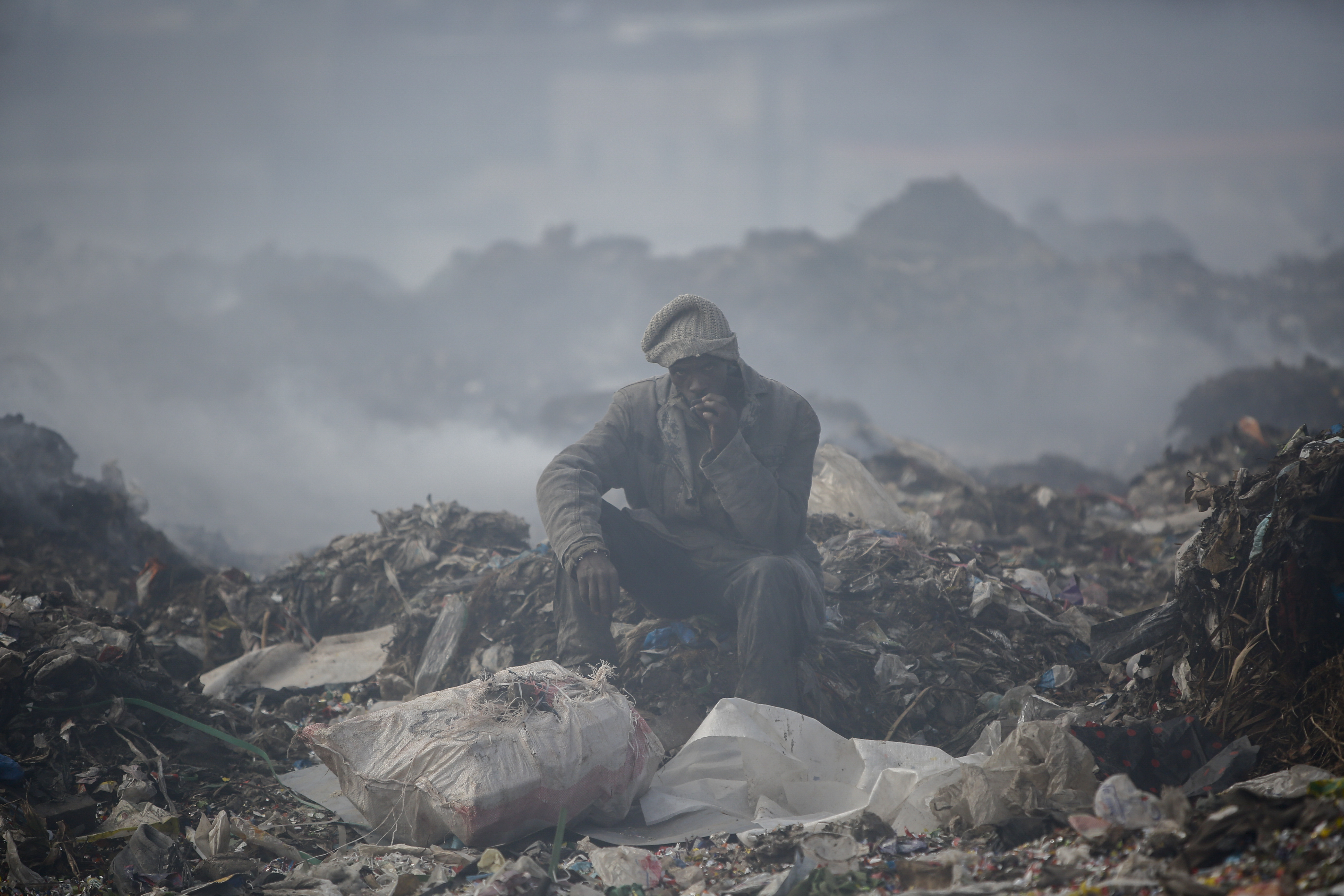 FILE - A man who scavenges recyclable materials for a living rests to smoke a cigarette on a mountain of garage amidst smoke from burning trash at Dandora, the largest garbage dump in the capital Nairobi, Kenya, Tuesday, Sept. 7, 2021. The U.N. health agency said Monday, April 4, 2022, nearly everybody in the world breathes air that doesn’t meet its standards for air quality, calling for more action to reduce fossil-fuel use, which generates pollutants that cause respiratory and blood-flow problems and lead to millions of preventable deaths each year. (AP Photo/Brian Inganga, File)
FILE - A man who scavenges recyclable materials for a living rests to smoke a cigarette on a mountain of garage amidst smoke from burning trash at Dandora, the largest garbage dump in the capital Nairobi, Kenya, Tuesday, Sept. 7, 2021. The U.N. health agency said Monday, April 4, 2022, nearly everybody in the world breathes air that doesn’t meet its standards for air quality, calling for more action to reduce fossil-fuel use, which generates pollutants that cause respiratory and blood-flow problems and lead to millions of preventable deaths each year. (AP Photo/Brian Inganga, File)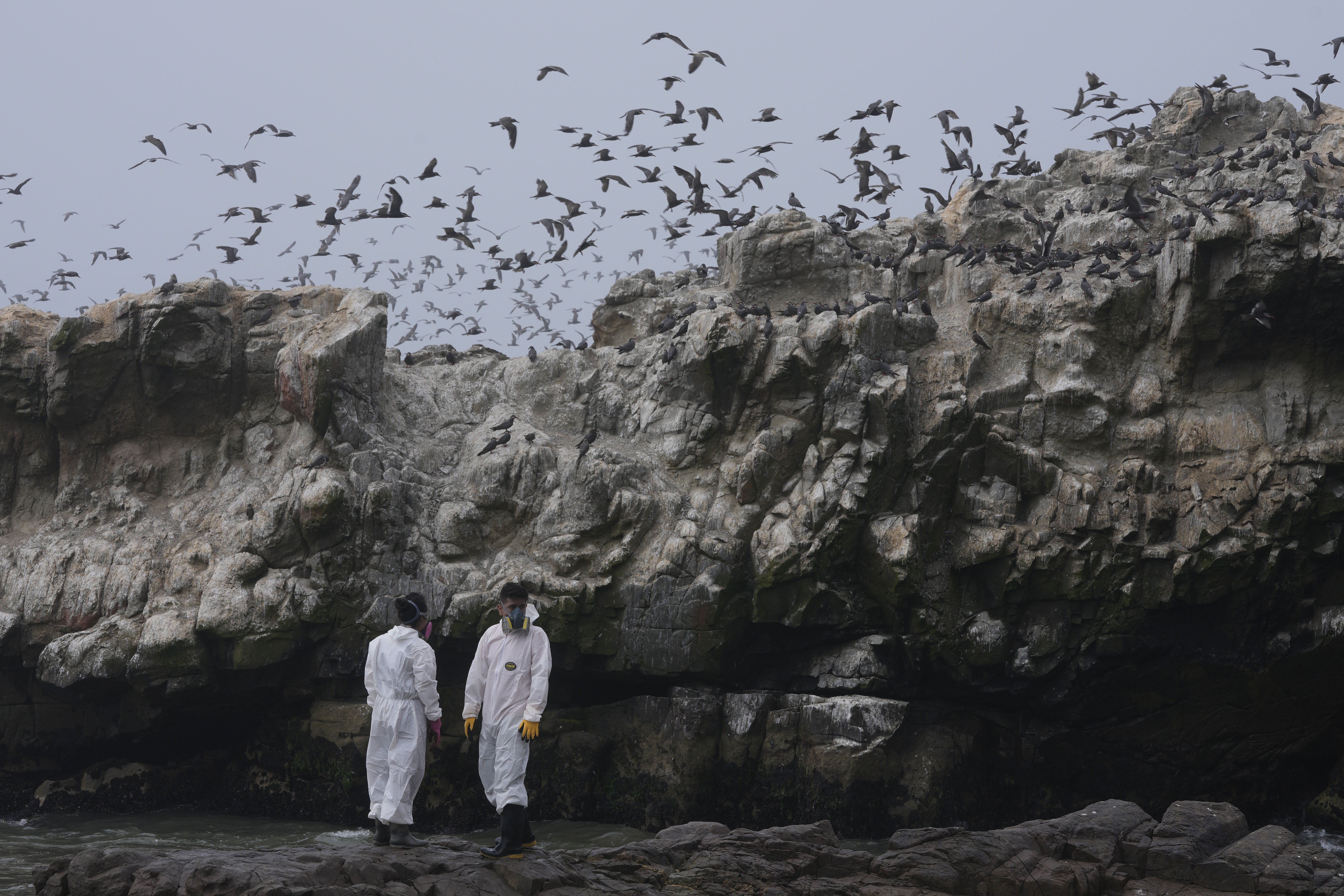 FILE - Workers clean oil from Cavero Beach in the Ventanilla district of Callao, Peru, Friday, Jan. 21, 2022. The U.N. health agency said Monday, April 4, 2022, nearly everybody in the world breathes air that doesn’t meet its standards for air quality, calling for more action to reduce fossil-fuel use, which generates pollutants that cause respiratory and blood-flow problems and lead to millions of preventable deaths each year. (AP Photo/Martin Mejia, File)
FILE - Workers clean oil from Cavero Beach in the Ventanilla district of Callao, Peru, Friday, Jan. 21, 2022. The U.N. health agency said Monday, April 4, 2022, nearly everybody in the world breathes air that doesn’t meet its standards for air quality, calling for more action to reduce fossil-fuel use, which generates pollutants that cause respiratory and blood-flow problems and lead to millions of preventable deaths each year. (AP Photo/Martin Mejia, File)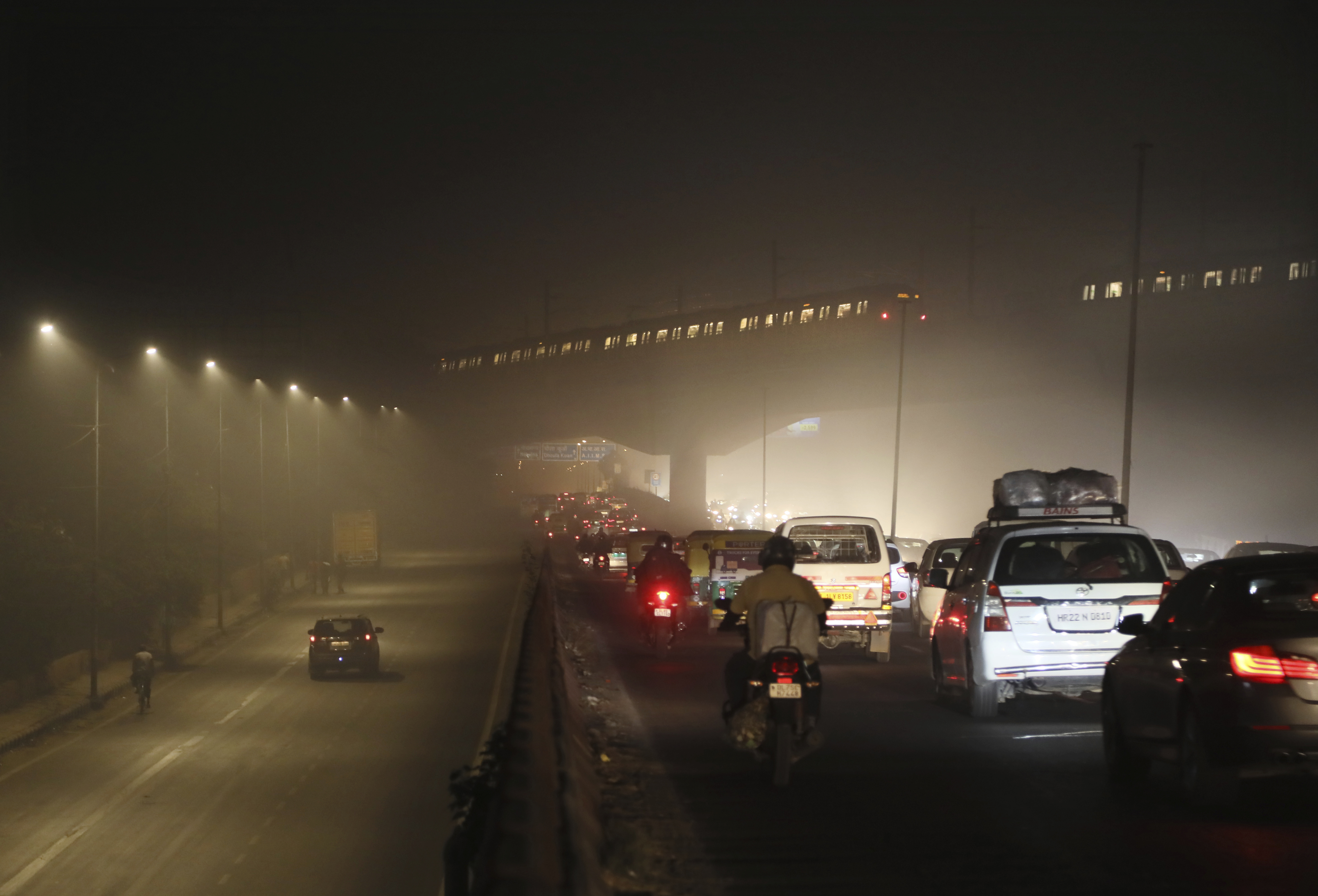 FILE - Commuters drive on a road engulfed in smog in New Delhi, India, Thursday, Nov. 5, 2020. The U.N. health agency said Monday, April 4, 2022, nearly everybody in the world breathes air that doesn’t meet its standards for air quality, calling for more action to reduce fossil-fuel use, which generates pollutants that cause respiratory and blood-flow problems and lead to millions of preventable deaths each year. (AP Photo/Manish Swarup, File)
FILE - Commuters drive on a road engulfed in smog in New Delhi, India, Thursday, Nov. 5, 2020. The U.N. health agency said Monday, April 4, 2022, nearly everybody in the world breathes air that doesn’t meet its standards for air quality, calling for more action to reduce fossil-fuel use, which generates pollutants that cause respiratory and blood-flow problems and lead to millions of preventable deaths each year. (AP Photo/Manish Swarup, File)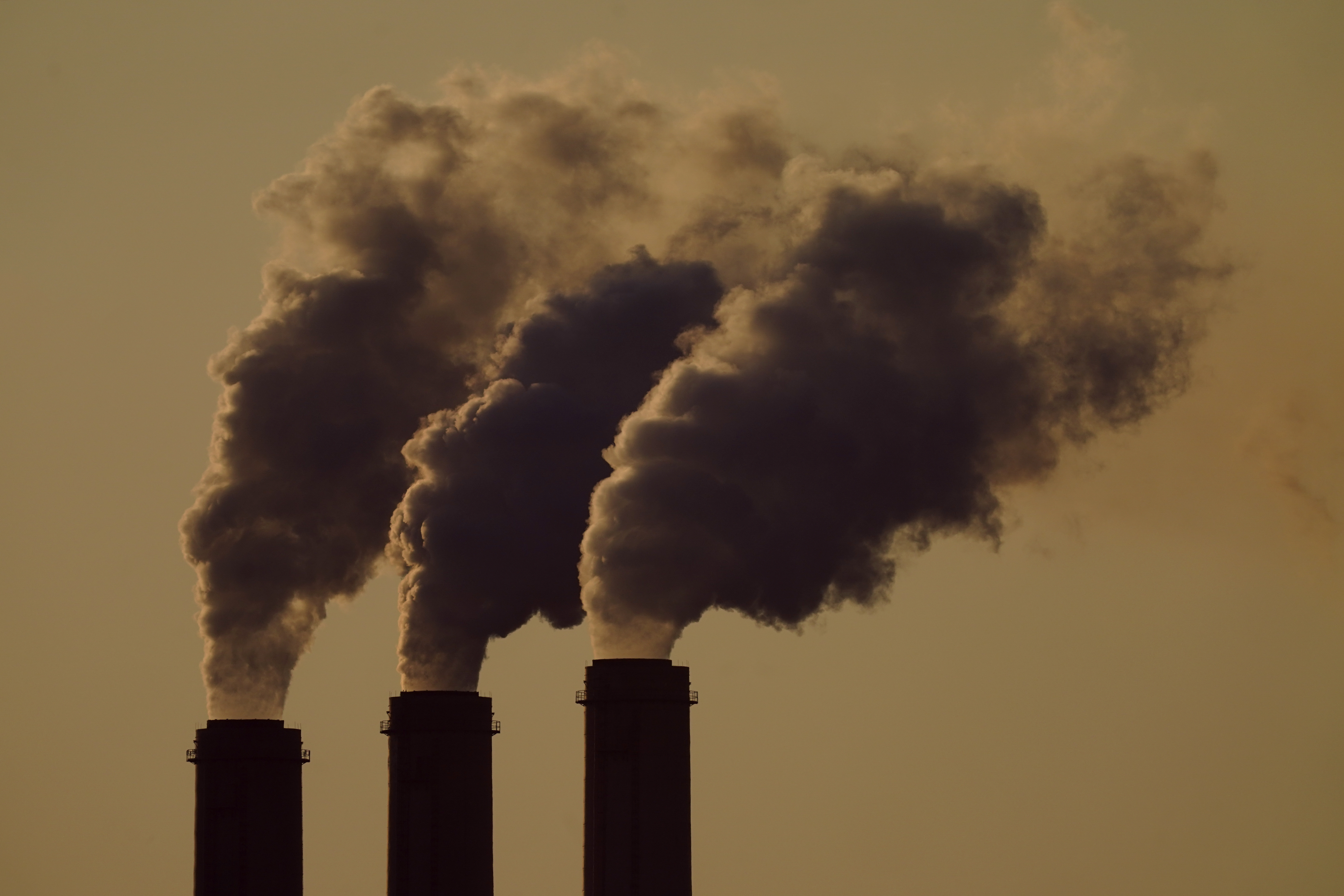 FILE - Emissions rise from the smokestacks at the Jeffrey Energy Center coal power plant as the suns sets, near Emmett, Kansas, United States, Saturday, Sept. 18, 2021. The U.N. health agency said Monday, April 4, 2022, nearly everybody in the world breathes air that doesn’t meet its standards for air quality, calling for more action to reduce fossil-fuel use, which generates pollutants that cause respiratory and blood-flow problems and lead to millions of preventable deaths each year. (AP Photo/Charlie Riedel, File)
FILE - Emissions rise from the smokestacks at the Jeffrey Energy Center coal power plant as the suns sets, near Emmett, Kansas, United States, Saturday, Sept. 18, 2021. The U.N. health agency said Monday, April 4, 2022, nearly everybody in the world breathes air that doesn’t meet its standards for air quality, calling for more action to reduce fossil-fuel use, which generates pollutants that cause respiratory and blood-flow problems and lead to millions of preventable deaths each year. (AP Photo/Charlie Riedel, File) FILE - A woman wearing a face mask to protect from COVID-19 walks against the office buildings in Central Business District shrouded by pollution haze in Beijing, Thursday, Nov. 18, 2021. The U.N. health agency said Monday, April 4, 2022, nearly everybody in the world breathes air that doesn’t meet its standards for air quality, calling for more action to reduce fossil-fuel use, which generates pollutants that cause respiratory and blood-flow problems and lead to millions of preventable deaths each year. (AP Photo/Andy Wong, File)
FILE - A woman wearing a face mask to protect from COVID-19 walks against the office buildings in Central Business District shrouded by pollution haze in Beijing, Thursday, Nov. 18, 2021. The U.N. health agency said Monday, April 4, 2022, nearly everybody in the world breathes air that doesn’t meet its standards for air quality, calling for more action to reduce fossil-fuel use, which generates pollutants that cause respiratory and blood-flow problems and lead to millions of preventable deaths each year. (AP Photo/Andy Wong, File)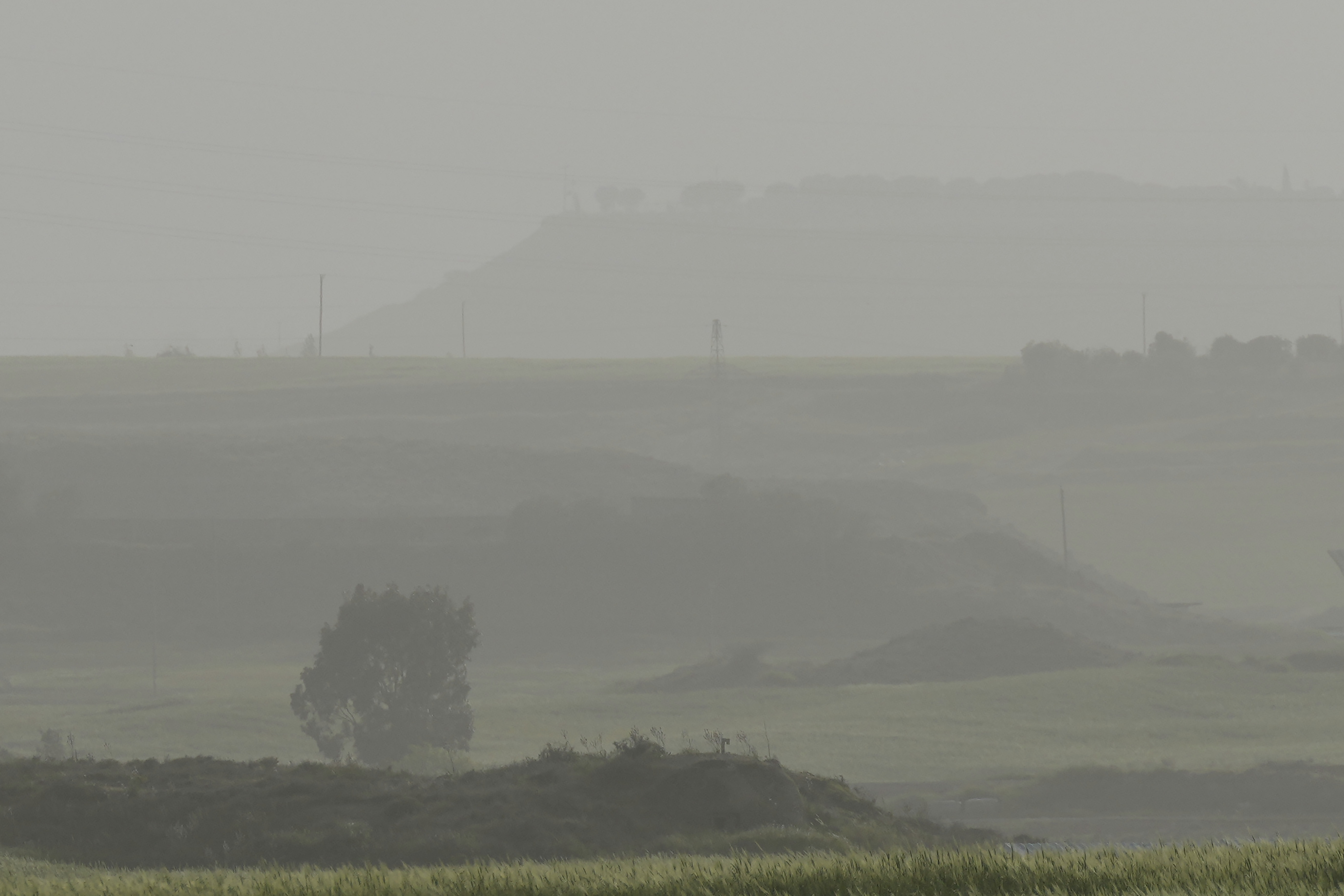 Haze hangs over the fields outskirt of capital Nicosia, in the southeast Mediterranean island of Cyprus, on Monday, April 4, 2022. The U.N. health agency says nearly everybody in the world breathes air that doesn't meet its standards for air quality. The World Health Organization is calling for more action reduce fossil-use use that generate pollutants that cause respiratory and blood-flow problems and lead to millions of preventable deaths each year. (AP Photo/Petros Karadjias)
Haze hangs over the fields outskirt of capital Nicosia, in the southeast Mediterranean island of Cyprus, on Monday, April 4, 2022. The U.N. health agency says nearly everybody in the world breathes air that doesn't meet its standards for air quality. The World Health Organization is calling for more action reduce fossil-use use that generate pollutants that cause respiratory and blood-flow problems and lead to millions of preventable deaths each year. (AP Photo/Petros Karadjias)